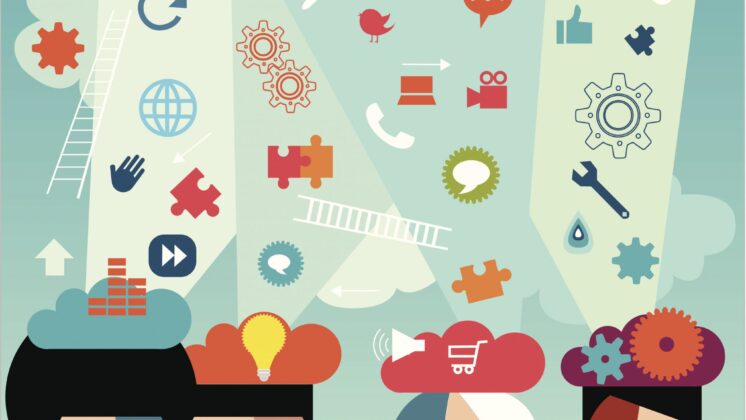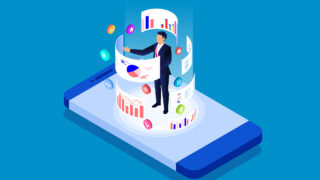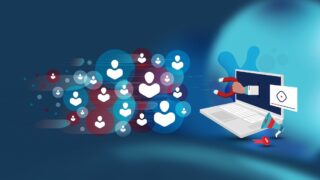Social Media & Digital Communications: Impact on Global Public Opinion
Social and digital media have dominated the communications industry for decades. But it's no secret that social media has the power to sway public opinion, and the way in which many companies use these platforms could be seen as manipulative.
What do companies need to be aware of when utilizing social and digital media? How can these mediums be used to better communicate strategically with the world?
Discover what top media and communications experts have to say.
Do you believe you can change the world?
A 2019 survey by the Nippon Foundation revealed some surprising data about young Japanese people (aged seventeen to nineteen): only 18.3% of them answered yes when asked if they believed they could make a long term change to modern society. This was the lowest number among the eight other countries surveyed, which included the US, UK, Germany, China, South Korea, Vietnam, India, and Indonesia.
Why did Japan’s respondents feel so unempowered? Is it because there are no social issues to be solved in Japan? Or is it because young Japanese people don’t believe they’re active stakeholders in their own cultural and social institutions?
We don’t really have a clear answer, but we can venture a guess based on some other data in the same survey. As it turns out, Japanese youths scored the lowest for every question about themselves. Were there social issues they wanted to see resolved in their own society? Did they have discussions about social issues with family and friends? Overwhelmingly, yeses were few and far between.
It seems that Japanese youths are not only pessimistic about their own power, but about the country as a whole. Few seem to think their country is going to improve—and just as few feel they can do anything about it.
Though Japan’s numbers were the lowest in this particular survey, the sentiment of helplessness among young people is likely a global trend in the era of COVID-19. After all, government lockdowns and social distancing have put up new barriers to taking action.
Or have they?
Young people facing that sense of helplessness are forgetting that they are uniquely equipped with weapons no generation has wielded before.
Digital Natives vs. Digital Immigrants: How to Champion Social Change
Young people today are growing up as digital natives. While their digital immigrant parents may be annoyed that their kids never put down their smartphones and iPads, digital literacy is a priceless asset. In fact, it has a huge role to play in the change-making process—specifically, in two aspects.
The first aspect is knowledge sharing. Internet access puts vast amounts of information—from everywhere—right in front of you. And that information isn’t even limited by language barriers! Nowadays, you can translate anything into almost any language in just one second. Not so long ago, that was completely unimaginable.
The second key aspect of digitalization is networking. I don’t need to do a deep dive into the value of social networking services—we all know how powerful social media is. The bottom line is that these platforms do more than enable you to connect with your own friends. You can use them to get in touch with prime ministers, celebrities, YouTubers, scholars, and all other kinds of people. On Twitter, you can actually have a dialogue with some very influential thought leaders.
Social Media & Digital Communications: Impact on Global Public Opinion
Social and digital media have dominated the communications industry for decades. But it's no secret that social media has the power to sway public opinion, and the way in which many companies use these platforms could be seen as manipulative.
What do companies need to be aware of when utilizing social and digital media? How can these mediums be used to better communicate strategically with the world?
Discover what top media and communications experts have to say.
That is the power—the very accessible power—of networking in the age of digitalization. And because young people are growing up in an environment that gives them this power from the outset, they are uniquely equipped to wield it.
Next Article
True or False: You’re Ready for a Digital Marketing Future
Strength in Numbers
Here’s one other important factor to consider: More than half of the world’s population is under 25 years old. That means that young people have the power to change society thanks to sheer numbers. Pair that with digitalization, local activities, and community involvement, and you can reach a global level in no time.
Look at Greta Thunberg. She started activities in her own community, and now those activities are spreading all over the world. In Japan, young women are breaking through old stereotypes and taboos. Time added two of them to its 100 Most Influential People of 2020 list. The first was journalist Shiori Ito, who became a symbol of the #MeToo movement. The second was tennis pro Naomi Osaka, who protested racial injustice on her way to her third Grand Slam title. Digitalization had a lot to do with getting their messages out there—and ensuring impact.
What is the first step in implementing social change?
If more young adults empowered themselves, we’d have sweeping social change on a global scale. And doing that is easier than it sounds. It just takes two steps.
Part 1: Wake up
We all have the experience of waking up in the morning: you open your eyes, and you’re suddenly aware of what’s happening around you.
In the context of social change, waking up means you educate yourself about an issue. In the age of digitalization, this can be done by you alone or in groups. You might be inspired by the information you access or by the involvement of others. Either way, the momentum you gain in the waking up stage can inspire you to move to the next step.
Next Article
How One Woman Is Promoting Digitalization and Diversity for a New Age of Marketing
Part 2: Get up
Just like you do in the morning, after you wake up, you have to physically get up. That’s what we’re seeing people like Thunberg, Ito, and Osaka do.
Your action can be anything. Empowering youth in the age of digitalization and social change is how I’m getting up. Like me, you can share your own knowledge or experience with the people around you. You can organize a conference or workshop. Or you can do something bigger. The point is: do something. Armchair activism is not enough.
Many of us tend to stop in the process of waking up. Often, that’s because the getting up part seems much harder—but it doesn’t have to be! Talk about social issues with people who disagree, and share your personal experiences with your friends, coworkers, and family members. That can be a good first action.
People who make it into the media (like Time’s list) are often pretty far along in the second step. By the time they reach a global audience, their activities seem overwhelmingly impressive for someone just getting up. But don’t be discouraged—all of those people started by waking up.
Next Article
Catalyzing Digital Transformation through the Human Element
Start Taking It Personally
If waking up and getting up still seem like high hurdles, here’s a bit of unconventional advice to get started: make it personal.
Just picking any old issue at random likely won’t light a fire under you. Thunberg, Ito, and Osaka all started with something that caused them personal pain. They took their memories of injustice and refused to let them go. A problem has to mean something to you if you’re going to become part of its solution.
But here’s another secret: you’re connected to more social issues than you realize.
Remember those two aspects of digitalization? Here’s where they come in handy! Knowledge sharing and networking give you all the tools you need to learn about—or, wake up to—the issues impacting your life. And once you find that connection, you won’t be able to resist the urge to raise your voice. That’s when you get up.
In the age of digitalization, actions you take in your community can inspire a global movement.
So believe it: you can change the world.






